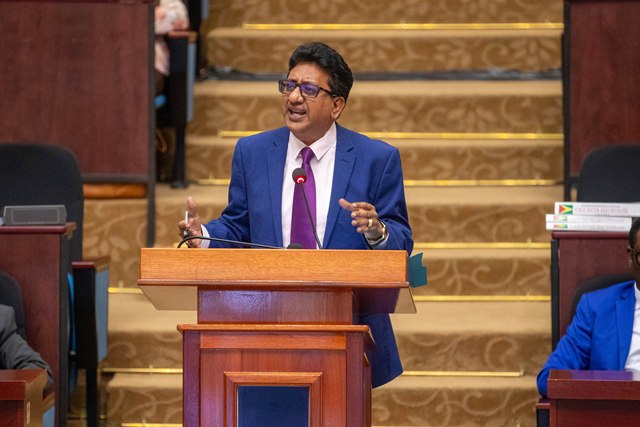After the court ruled against the squatters claiming rights to the Mocha Arcadia/Caneview lands, they are now required to pay $2 million in costs to the respondents, which include the Attorney General, the Central Housing and Planning Authority (CHPA), and the Guyana Sugar Corporation (GuySuCo). This significant ruling, handed down by Chief Justice Roxanne George, reinforces the government’s legal claim over the lands and its authority to take necessary actions to remove the squatters.
According to Attorney General and Minister of Legal Affairs, Anil Nandlall SC, this decision reaffirms that squatters have no legitimate rights to the land they occupy. During his weekly program, ‘Issues in the News,’ he emphasized that the judgement serves as a crucial reminder of the legal realities surrounding land ownership in the country.
The lands in question were initially owned by GuySuCo before being transferred to the CHPA. The AG recounted how the squatters had been repeatedly notified about the need to vacate the area, with notices dating back to 2008 and further communications in 2021 regarding plans to construct a major highway. While many residents accepted government offers of housing and compensation, a small number continued to resist relocation.
Nandlall highlighted that the government allocated approximately $250 million in compensation for the relocation of the squatters, providing them with titled lands and housing in the process. He pointed out that the squatters’ own actions undermined their claims of legal occupation, as they sought the government’s help in regularizing their status, which contradicts their assertion of having prescriptive rights to the land.
The Attorney General reiterated that under Guyanese law, property owners hold the right to remove squatters from their land, even without a court order. He stated that this ruling serves as a warning to anyone considering squatting, clarifying that they possess no legal claim to the land, and that the rightful owner can take necessary measures to evict them without facing legal repercussions.
Nandlall also took the opportunity to address the political implications of the case, condemning opposition members for exploiting the situation for their own political gain. He criticized them for misrepresenting the squatters’ legal status and failing to provide the promised legal assistance. He specifically mentioned opposition leader Aubrey Norton’s past statements encouraging the squatters to stay on the land, despite the absence of any legal basis for their claims.
The AG pointed out that the opposition’s narrative about “ancestral lands” is not recognized under Guyanese law, yet they continue to propagate this idea. He noted the hypocrisy of the opposition leaders who, while vocally supporting the squatters, did not offer any real legal representation when it mattered most.
Highlighting the lack of support from the opposition, Nandlall expressed disappointment that despite several lawyers in the opposition, none stepped in to represent the squatters in court. He criticized them for their public declarations and international complaints while failing to take tangible action to assist those who are now facing displacement and uncertainty.
In conclusion, the Attorney General’s remarks serve as both a legal clarification and a political critique, urging the public to understand their rights and the implications of squatting, while also calling out the opposition for their perceived exploitation of vulnerable communities for political purposes.


